The case against Amanda Knox is a useful reference case for the Chris Watts case, particularly in the area of the interrogation. Watts’ interrogation was long and exhausting. It involved three hours on Tuesday night [August 13] followed by seven hours the next day [August 14]. It could also be argued that he was informally interrogated for four additional hours, between 14:07 until around 18:00 when the cops were at his home.
If one adds the various phone calls, including several very early in the morning, the numbers on the clock really start adding up.
There are more than just a few glaring similarities between the Chris Watts case and the Amanda Knox case. For starters:
- Both confessed [and both confessions were bogus but derived to some extent from the true facts of the crime and crime scene
- Both implicated an innocent third party
- Both spoke at length during their interrogations, believing [or presenting] themselves to be “helping” investigators.
- Both went to elaborate lengths to obstruct justice [Watts by disposing of the bodies and removing evidence. Knox false accusation against Patrick Lumumba – to name one example – meant he was jailed for two weeks before he was finally cleared].
- Both were at the scene of the crime the next day, spotted by the media and behaving not a little inappropriately, but very inappropriately. This included not just physical behavior and demeanor but many statements made to various witnesses.
- Amanda Knox claimed “I wasn’t there” because very little evidence was found of her in Meredith Kercher’s bedroom. Although never tested in court, Watts also seemed to claim he wasn’t there [he was at work, or barbecuing] when his family disappeared or were murdered, even though they lived in the same house.
- Both Knox and Watts suggest some unknown intruder came into the home, committed murder, took virtually nothing and left no traces of themselves.
The list goes on…
Amanda Knox Says ‘Coercive’ Police Interrogation Led Her to Change Her Story – Time
Chris Watts mother says he didn’t kill daughters Bella and Celeste; claims he was coerced into taking a plea deal – CrimeOnline
Amanda Knox tells court police hit her during interrogation – Guardian
Italy Wrongly Deprived Amanda Knox of Legal Counsel, Court Rules – New York Times
How Foxy Knoxy changed her tune about the night Meredith was murdered – Daily Mail
To understand how easily a top defense lawyer could have mounted a successful defense in the Watts case, we need only take a casual look at the Amanda Knox case, and how she was able to beat almost all the charges against her over the course of a multi-year court battle against the Italian courts. [Knox was convicted of slandering Patrick Lumumba, and later Knox and her parents were accused of slandering the police but not convicted].
A key part of Knox’s defense was to undermine, invalidate and challenge the police interrogation against her. So despite living in the house opposite the room where Meredith Kercher was stabbed to death, the real criminals – the real suspects – weren’t her and her boyfriend. It was the dodgy, abusive cops. That’s who people should have looked at. The real crime wasn’t someone stabbing Kercher in the throat [burying the blade so far into her throat it stopped at the hilt]. The real violence were the two SLAPS Knox received while the cops were talking to her.
And the police are to blame for the fact that the suspects didn’t call their lawyers. Raffaele Sollecito, Knox’s boyfriend at the time, was offered legal aid by a family member and rejected it. Knox’s aunt also repeatedly advised her to contact the embassy/consulate. It seems it’s okay if family make these advisements and the suspects reject them, but it’s not okay if the cops don’t [or allegedly don’t].
Knox’s father appeared to hire a PR firm at the same time lawyers were hired to clean up the mess. How the narrative is configured: The police should have told the suspects that them being questioned in the police station about a murder in their home meant they were potentially at legal peril [otherwise they would have no way of knowing].
We know in the Watts case that he was repeatedly told he could leave the interrogation at any time, and he also received advice from friends and family [Nick Thayer and his father Ronnie Watts respectively] to get a lawyer. Despite his dumb refusal to get legal advice, Watts could have a lawyer plead the case that like Amanda Knox [and Brendan Dassey], Watts was tricked, coerced, tortured, manipulated and confessed under duress.
While there is some evidence to support this defense, what’s all clear is Watts did commit murder in his own home, and did tamper with evidence, and did move the bodies. Nevertheless, his best defense isn’t to defend the merits of his case, but to attack the police interrogation and investigation.
Theoretically he could also claim that a minor, Nicolas Atkinson, contaminated and compromised the crime scene [framed him, set him up etc] and that the officer on the scene [Coonrod] was negligent or reckless in “allowing” this to happen.
In the Casey Anthony and OJ Simpson cases, there is muddiness around the moment of arrest, and whether the suspects knew they were being arrested, whether they were arrested, and whether the right procedures were followed. As soon as a suspect is arrested, ironically, they win a series of inalienable rights, while at the same time, law enforcement must follow strict protocols. Top defense lawyers are experts in finding loopholes in where or whether these protocols weren’t followed to the letter.
When a murder is committed, and a suspect emerges, the cops have a right to question that person [whether they are a witness, a person of interest or an “official” suspect]. It’s in society’s interest that law enforcement exercise this right to question or interrogate, otherwise everyone would get away with murder. Also, the sooner they can question the better.
We often see when a suspect is guilty, their main tool is not only to deceive, but also to delay. The more time that passes [especially where bodies are missing], the more it plays into their favor.
As mentioned, the process of arresting and interrogating is tricky though. While the cops have the rights to ask questions, the person they wish to question also has rights, including the right to remain silent.
It all becomes muddy when the suspect gives up the right to remain silent and the cops may pretend or manipulate the situation, basically playing along that they know less than they really do, or don’t really believe the person in their custody is guilty [when they do, or have strong reason to].
If both sides are trying to manipulate the other side, even if the suspect is lying, the legal case tends to favor the defense side. It’s seen as unseemly that law enforcement would use deception or underhandedness to catch their killer, and to some extent this is justified.
The flip side though, is this:
A murderer is a liar. If the cops were 100% upfront about everything, there would be little point in having an interrogation. Just give the suspect a clipboard to tick off a few questions and let them go. But in the grey area of true crime, a suspect has to be able to explain and reason their behavior to the cops, and this can become a game of psychological warfare. Who decides when that line is crossed, or where it is?
In the Knox case, a big part of her accusation that she was misled lay in her claim that she couldn’t speak Italian, and thus was in the dark about what was really happening to her. While we can clearly hear her speaking fluent Italian in the video clips below [one months after her arrest], and while it’s clear her boyfriend at the time was Italian [and he could hardly speak English], the onus does fall on the cops [even though they were Italian], to have made provision for an interpreter. So while the actual argument is probably not sound [or true], the legal argument is another matter.
When Watts took the polygraph test, he was given a demonstration where he was told to lie, and shown the results. This test was meant to provide unambiguous proof that he understood the English language, understood the difference between right and wrong [telling the truth and lying], and took the test anyway.
Another aspect that made it difficult for Knox to be prosecuted was the huge amount of negative PR coming from America [and later from Britain] directed at the Italian police and justice system.


The Knox PR camp successfully turned a criminal case into a political one. This meant Italy [the country] had more to gain by not convicting Knox than by convicting her.

It also became a lot more difficult to execute on the confessions on Knox when the interrogation and the police were being undermined in the media.
Now, at the zenith of the #MeToo movement, we see a European court – more than ten years after the criminal trial – upholding Knox’s “human rights”.
In theory, had Watts taken his case to trial, a top defense lawyer could have surfed this wave of his clients rights being violated at every turn. In addition to that, if he admitted to being bisexual, he could also question the motives of the imputed murderer of the children, and the rush to judgement by the cops to be a form of conscious or subconscious discrimination.
In the OJ Simpson case the acquittal wasn’t for lack of evidence, but because the jury sympathized and identified with the race of the defendant, and further, wanted revenge against an allegedly racist detective [Mark Fuhrman].
In true crime, and criminal law, we want the criminals to be evil and absolutely guilty, and the cops chasing them to be completely good, and completely innocent in their police work and interrogations.
Defense lawyers know the cops are only human, and as far as the law is concerned, that can trump the guilt of the defendant. If there is no reasonable doubt by way of the defendant, the methods used by the cops can be used to manufacture it. There’s no doubt that Watts was manipulated and misled during his interrogation. There’s also no doubt that he was actively manipulating and actively misleading about three murders and a recent burial of all three bodies. Sometimes the manipulation of the cops can turn a case, and a verdict, as we see in the Knox case.
Sometimes a degree of play-acting by law enforcement seems necessary and even justified. As they say, it takes a thief to catch a thief. In the Watts case we see how it takes the same foxy thinking to outwit and catch a liar and a murder, especially as they are doing everything they can to avoid telling the truth, being caught or held to account for their crimes. Ultimately, just as in the Knox confession, even when Watts did confess, the confession was a lie.
During their respective interrogations, the cops finally offered both Watts and Knox a way out, an exit, and both took it and ran with it. Both took the bait of blaming and implicating someone else.
In the Watts case, what this revealed was that his “disappeared” family were dead, all of them murdered, and he knew it. He’d known it all along. The fact that he could nonchalantly play act with the cops for hours on end, with a straight face, knowing they were dead is what horrifies us.
But at the moment he acknowledged the lie the cops offered him, that Shan’ann had killed his daughters, he admitted a) that he knew they were dead and b) that he was there when they died. Then, automatically he became the prime suspect not in a missing person’s case but in a homicide investigation.

In the Amanda Knox case, the moment she acknowledged hearing Lumumba murdering Meredith, she also admitted being at the scene during her murder. But the outcome of that bogus confession has since favored her, hasn’t it? Perhaps in due course Watts will appeal along this very same tenuous line of defense. Do you think he’ll win or that he should?
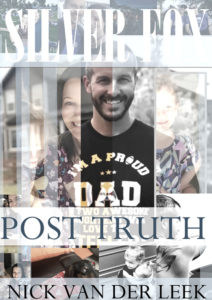
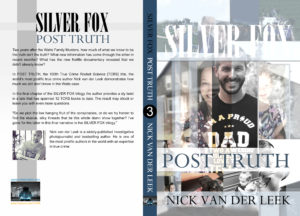



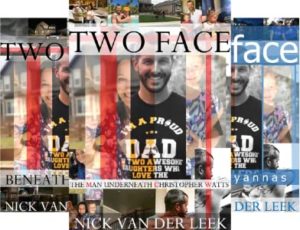

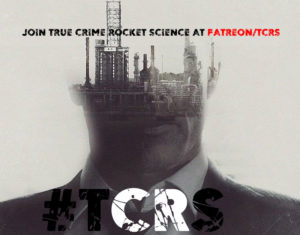

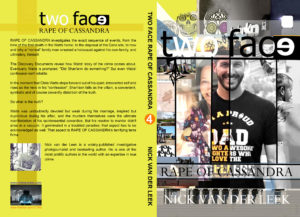
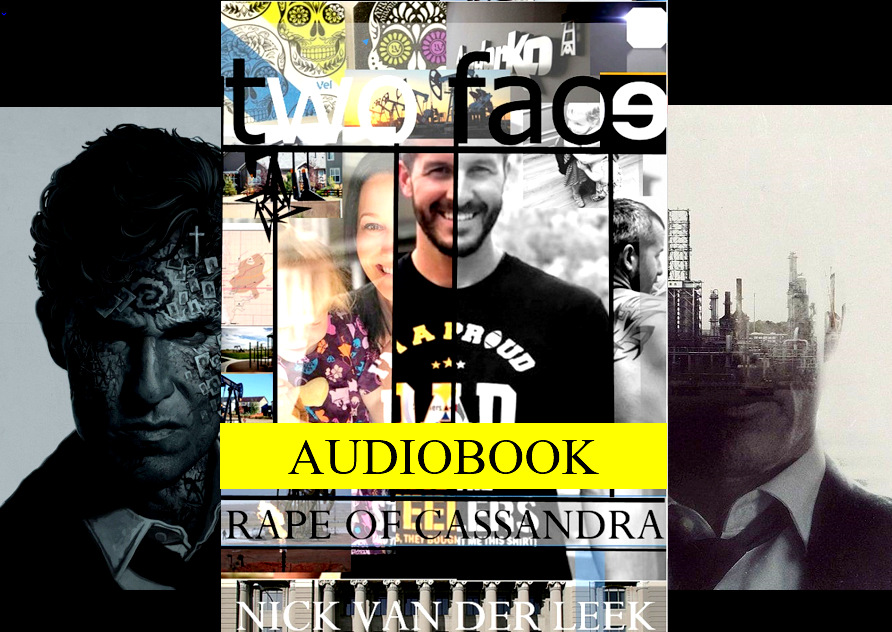
I guess a high-priced clever attorney could make a case that Watts was coerced but I don’t think that would be the way to go. He was given multiple opportunities to leave. And it’s all on the record. He had to sign a consent to search, before they would go in. And he did so. Where I would go with this is to claim “ineffective assistance of counsel.” He would have to show two things: 1) deficient performance by counsel; 2) resulting prejudice, in that but for the deficient performance, the result of the proceeding would have differed. (wikipedia). That the media leaked Watt’s defense attorneys came to Rourke with a plea deal (agreement) because “his story didn’t add up”, is grounds for reversal in my opinion. A deal that had him plead guilty to 9 counts and get life for it by taking the death penalty off the table (when death wouldn’t have been conferred) is not a deal. Either they did not effectively plug the media leaks or that is a grossly negligent reason for offering such a deal. And that’s where I would go. It’s not easy to prove, but what has he got to lose at this point.
Do you know the Amanda Knox case? I mean are you familiar with it?
What this is is a thought experiment to show and explore parallels. So to go “nah a better defense strategy…” is to miss and dismiss the parallels ito of the interrogation aspect.
We have intimate knowledge of both interrogations and intimate knowledge of the bogus narratives. We don’t know about Watts’ lawyers because they ultimately mounted no defense. Hence in terms of this comparison, there is no comparison.
Got it
Nick, a great post filled with my fave talking points, but uhm..I saw the advert for the 5th book, ran (metaphorically speaking) to Amazon and cant find it argh! When will it be for sale?
With Watts doing everything wrong from start to finish.
The whole “after the fact”, seems so rushed, why, we don’t know.
I can only hope he realizes, he was wronged in his defense. He has nothing better to do, then to try and see.
Not sure if he is talking with other inmates, but they are knowledgeable on their own cases. Hopefully he can learn and speak out and up.
Instead of gourging on chocolate.
“But the outcome of that bogus confession has since favored her, hasn’t it? Perhaps in due course Watts will appeal along this very same tenuous line of defense. Do you think he’ll win or that he should?”
_______________________________________________
I think he deserves to win an appeal and to stand on trial. It’s his constitutional right to face his accusers and to be judged by a jury of his peers.
Do you think his father now has the desire and means to engage an attorney for an appeal?
It’s odd that when I first saw the tape of Watts telling his father that Shannan killed the girls, I immediately thought of Amanda Knox accusing Patrick Lubumba.
I’ve often thought how different this case would be if after being informed that he had failed the polygraph, and as soon as the investigators launched into their, “Chris, I think you’re ready now to tell us what really happened”, he had advised them that he would not be speaking any further without an attorney present. Same goes for Knox.
Dear CBH, cogent as always! I think the same points, deserve the same brilliant attorney 🙂 but of course why he took that polygraph will forever puzzle me, its never the job of the police to dig too deeply, I didnt think there was a human left who would trust taking a polygraph, he’s either incredibly naive, or stupid to the point of comatose, I wonder which?
Thanks kindly. 😉
I don’t think he’s stupid; rather, I think he wanted to appear cooperative and genial to the investigators. He likely thought he could will himself to pass it ( his magical thinking which mirrored Shannan ‘s).
I always enjoy reading your posts.
You write really well.
((*-*))
ADDENDUM:
Isn’t his 49 days from sentencing up, though? Has the time run out?
Officially yes. Pretty much. Theoretically he could lodge a legal claim at any point disputing due process. He has decades behind bars to prepare…
Would lodging a legal claim lead to the plea being overturned and him standing trial? His parents had seemed so intent on fighting the plea, why do you suppose they didn’t get things moving with an attorney?
I think Watts would rather spend the whole of his life where he’s at than to ever show his face again knowing people see him for what he truly is.
I think you’re right about that, Karen!
At 4:31 in this clip Amanda Knox claims she was interrogated for 53 hours…
https://youtu.be/ni182X5e4Gg?t=271
Are you in agreement with him as to her being a psychopath?
I don’t like the use of labels. But to answer your question, the murder of Meredith Kercher was incredibly brutal. She wasn’t just stabbed in her throat, she was tortured and probably taunted. She died by drowning in her her blood; once her throat was penetrated blood flowed into her lungs. While pinned down she expirated blood around her and on the walls. But eventually she was unable to breath because of the mass of blood flowing down her throat, down her windpipe, into her lungs.
https://www.mirror.co.uk/news/uk-news/merediths-47-wounds-350444
There’s also a strong suggestion that whoever murdered her had the confidence and clearheadedness to spend several hours carefully staging the body and staging the crime scene, and for all intents and purposes, this person [or persons] succeeded. Would an intruder risk spending several hours mopping up a crime, putting in a load of laundry, removing bloody shoeprints, staging a burglary…in someone else’s home? So that does suggest an incredibly cool kind of psychopathy at the time of the crime and following it. This could flow out of the personalities of the killer [or killers] or out of the personalities being on something when the crime was committed, or both.
If the crime was committed while high [for example], but the killers continue to be cool and nonchalant about it when they’re not high, for years following, what does that say?
It’s a question I put to you.
Again, I don’t like the use of labels, because it prevents us from thinking about mechanisms as you’ve just seen.
“If the crime was committed while high [for example], but the killers continue to be cool and nonchalant about it when they’re not high, for years following, what does that say?
It’s a question I put to you.”________________________________
I would agree that that does indeed seem indicative of psychopathy.
The Henri van Breda triple axe murder case is another good example. Seems like a genuine nice guy. Well-brought up, well-educated, well-spoken. The hacking of three family members to death with an axe doesn’t seem like Henri’s doing, it’s just too hardcore. But when you bring in the possibility of serious substance abuse or addiction [long term], the possibility of psychopathy, or a psychopathic act begins to rise.
In my personal experience with folks who use drugs habitually, they are master manipulators and become natural liars. Whatever they were off of these substances is one thing, but it’s clear that over a period of time drugs have a numbing effect on one’s sensitivity to others, not to mention ordinary morality.
The most incredible thing to us is the brazenness of the lying. It’s not so incredible to a regular drug user who lies as a matter of lifestyle. So when a crime is committed [they probably lie to themselves saying “it wasn’t me/I wasn’t myself”] and in court it’s natural to do what they’ve done as second nature out of court: lie. In court, out of court – truth/lies. It’s all the same to them.
Not all liars are murderers, but all murderers without exception are liars, and many are living a lie when they commit murder. That’s often broadly why they commit murder – to defend a lie [including where the lie may be who they really are].
Make sense?
For those interested in my 6-part series on Henri van Breda…https://www.amazon.com/gp/product/B07H8JTDQJ/ref=series_rw_dp_sw
Absolutely, it makes a great deal of sense.
Amazing what money can do. Changes everything
I’ve seen Scott Reisch mention a couple of times in his videos that he thinks there is something he could work with in the Watts case, but hes never really elaborated on what. It would be nice to see.
The main difference with the Watts case that I can see is that Knox didn’t have an Orwellian style surveillance array constantly recording her every move.
Even if Watts were to declare his confession coerced and his defense council inept, they have clear video evidence of him and only him leaving the house in his truck, and a handy GSP satellite tracked map of his exact movements down to the second which leads them directly to the site the bodies were disposed at – a site he specifically arranged to be at that morning and which only he had any reason to be at. Although circumstantial, it seems like it would be very hard to convince a jury of complete innocence.
Law is not my area of expertise though, so I’d be interested in hearing any ideas from people in the know of how the defense would counter all the other evidence against him.
Orwellian style surveillance array…I like the sound of that.
Although the digital array was far more elaborate in the Watts case, there were quite a few eyes and ears on the Knox villa, and a fair amount of cell phone and computer browser data on multiple computers. There was a witness from above who heard a scream, CCTV from across the road, another witness in the park and also a shopkeeper who saw Knox waiting impatiently for him to open first thing in the morning. Quite an elaborate evidence tapestry if you know where to look.
I read a book called “angel face” about the Amanda Knox case a few years ago, and the author’s conclusion was that Amanda and her boyfriend took so many drugs and alcohol that night that they had a “black out” and couldn’t remember most of the night. They weren’t sure if they took part in her killing with Rudy or not. So they went to the grocery store early the next morning to buy cleaning supplies, then cleaned the house with bleach, washed clothes, and staged the broken window.
I do believe Amanda is a liar and manipulator, but the book did make a lot of sense.
It’s not a bad theory but it doesn’t explain the lucidity of the cover-up, staging and relatively smooth aftermath. If there was a black-out, likely the staged crime scene would have been a mess with a lot of evidence messily left behind. Instead that house was wiped clean from top to bottom, so clean they were barely able to recover any of Knox’s fingerprints throughout the entire house even though she lived there.
The black-out scenario is also a favored defense explanation used in many high-profile cases/narratives including Jodi Arias, Oscar Pistorius, Henri van Breda, OJ Simpson [If I Did It] and corresponds broadly to Knox & Sollecito’s own versions [that they were both asleep during the murder].
There are some drugs that not only lower one’s inhibitions, but raise one’s confidence and energy levels. So imagine committing a crime and then the drug giving one a capable psychological sense that one can “handle it” and outsmart everyone.
I still don’t believe Chris watts is a narcissist, nor sociopath or psychopath. I believe due to his “passivity” he was extremely repressed and a ticking time bomb. He had enough of the bullying and emasculation going on in his house, wanted a life with his new girl, and exploded, killing Shan’ann. Bella witnessed it. He was still raging, and instead of calling the police and sparing the lives of his innocent children, he made the horrific decision to kill them too.
When he finally snapped out of it and his rage was spent, he began his cover up.
Because he never asked for a lawyer and never challenged the plea deal, this to me tells me he feels full of guilt and has decided to do his time in prison.
https://shakedowntitle.com/2018/10/04/chris-watts-just-snapped/
I know a little about Amanda Knox – I have watched her go through several of her chameleon-like changes on air, the “whole-earth Seattle grunge waif” to the sophisticated hair bobbed wise one, to the pure snow white innocent wrongfully accused, etc., etc. and I have to wonder. She’s living with the knowledge that she was the ringleader in a murder of a girl she was jealous of – recently excluded from Halloween night festivities, which probably brought up her feelings of being on the outs before, as a teen in Washington, and her bratty response at that time by taunting the cops and throwing things after a drunken party. In any event, she could put together a pretty good act because of her looks, and Watts didn’t have that to use as his advantage. She also had the advantage of being an American “falsely accused in a foreign country” what a great defense, plus Daddy’s money and PR firm doing damage control. If she was resentful and jealous of Meredith, wasn’t van Breda resentful and jealous of his older brother? And both of these characters felt inadequate in school, add to the mix drugs and alcohol and you have a huge sense of entitlement that you are not going to let the other get the one up on them. I think on the Narcissist test Watts would score 0 in the entitlement category – if anything he felt inferior – as did Amanda Knox and Henri van Breda – but in the case of the latter the feelings of entitlement were stronger (bolstered too by their drinking and drug addictions).
Scott Peterson left even less evidence than Chris Watts and a seasoned, top-notch lawyer like Mark Geragos could not save him.
-There was no video evidence against Scott. There was evidence of Chris loading the bodies.
-There was no trace of an unhappy marriage in case of Scott. Chris and Shannn left gigabytes of traces.
-Scott was pretty tight-lipped, except for one interview. He did not let anything out. Except that he was emotionless like Chris. Chris already confessed to one murder.
-Laci’s body was found much later than Shanann’s. That’s why the defense could spring the “mature foetus” theory.
Therefore I do not think a top notch lawyer could have saved Chris. Unless of course, he had OJ’s money (which he didn’t) to hire a team of them.
Also, I think there was some other evidence, not released to the public, that caused Chris to surrender. As part of the plea deal, that may never come to light.
Scott Peterson lost mostly because of Amber Frey’s testimony and the police tapes. The prosecution were out of it not being able to say when, how or exactly why Laci was murdered.
Amber provided a sense of why and outraged the jury by how callous Peterson actually was while Laci was missing.
You are correct that extramarital affairs, adultery and indifference/callousness play negatively in the minds of the jury, which is precisely why I think Chris would have possibly faced the same fate as Scott Peterson and Ross Harris. It is human psyche to mentally lynch and pelt invisible stones at someone found to be engaged in adultery. The jury are not computer programmed digital robots, they have minds.
Just because “….he knew they were dead and b) that he was there when they died.” does not prove he murdered them. Nick, you know better than that!
If Shanann murdered the girls then died from either committing suicide or from attempting to abort her baby, then Chris Watts would have known they were dead and would have been there when they died.